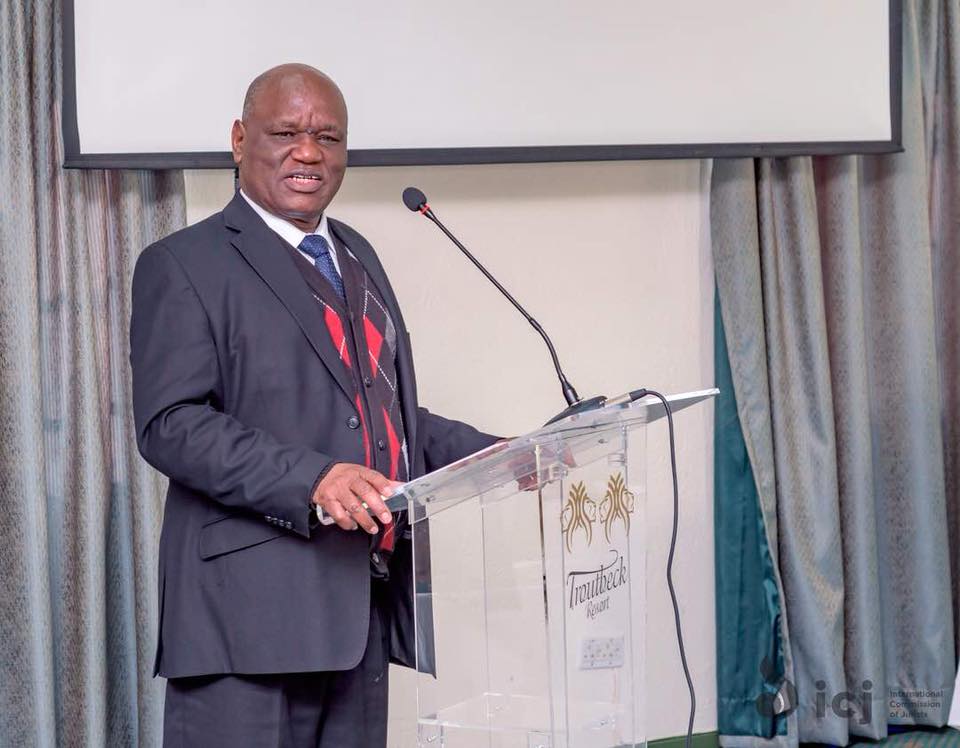HARARE – Chief Justice Luke Malaba faced an open rebellion from High Court judges over his controversial directive, which he later withdrew, requiring judgements to be reviewed and approved by superiors before they are handed down.
In an unprecedented revolt by judges against a Chief Justice, the judges told Malaba his directive was “highly objectionable and completely unacceptable.”
Legal experts who spoke to ZimLive said Malaba should resign.
Malaba issued the directive on July 16, sparking a furious response from lawyers and international legal watchdogs who said the move undermined the independence of judges.
The Chief Justice amended the directive a day later, this time dropping the requirement for judgements to be “approved”, while maintaining that they should be “seen” by the Judge President.
A leaked memo signed by all the judges of the High Court and Labour Court reveals just how intense the internal pushback against Malaba was, forcing Zimbabwe’s top judge into a humiliating climbdown.
The judges said they had held some consultations with Malaba, and had no qualms with elements of his memo, including his directive that once a judgement is handed down it cannot be withdrawn by the judge, and that judgements should promptly be made available to lawyers, litigants and the public after being delivered.
In a July 22 memo, which came just hours after Malaba finally recanted and also dropped the requirement for judgements to be “seen”, the judges wrote to the Chief Justice: “However, when the directive was issued… it contained completely new issues… to the effect that: before a judgement of the Labour Court or High Court is issued or handed down it should be ‘seen and approved’ by the head of court or division and that judges should forthwith desist form the habit of issuing orders with the undertaking to give reasons later, the only exception being in relation to orders on points in limine (preliminary arguments).
“Quite apart from the impracticality of the directive that the head of court or the heads of divisions should ‘see’ every judgement or order before they are handed down (presumably including those made in motion court proceedings or in bail applications), judges of the High Court, at all the stations, wish to bring to the attention of the Honourable Chief Justice that paragraph 2(iv) and (v) of the directive, even as amended, is highly objectionable and completely unacceptable for a number of reasons, not least: by some administrative fiat, it is effectively sought to impugn and seriously undermine the independence of a judge who, in terms of the Constitution, is appointed as an individual to exercise, without fear or favour, such of the functions as are reposed by law.
“In the exercise of his or her judicial functions, such as making decisions and handing them down, a judge does not operate under any other judge or person or body. The directive to have the head of court or division ‘see’ a judgment or order before they are handed down lacks precision as to what this means practically, and what the ‘seer’ ought to do after ‘seeing’.”
The judges also took issue with Malaba stating that the Constitutional Court and Supreme Court have final jurisdiction, insisting: “… the High Court is itself a superior court with original jurisdiction in all matters except those limited or removed by law; it has final jurisdiction and its judgments are binding throughout the land unless if set aside on appeal.”
The High Court and Labour Court judges also objected to Malaba’s decision to bar them from making rulings while undertaking to provide reasons later.
“It is an age-old practice that has stood the test of time that in suitable cases, a judge of the High Court can issue orders which the parties who appear before him or her can fully act upon in the meantime as he or she prepares the reasons for his or her decision, if they are required, or if an appeal is intended or has been noted,” the judges maintained.
Two lawyers who spoke to ZimLive said the rebuke Malaba faced from the judges was without precedence, and he should resign.
“His goose is cooked I’m afraid,” one lawyer said, asking not to be named for fear of reprisals.
“The High Court and Labour Court have by far the most judges of any top court, and that means a majority of judges in this country have rebelled against the head judge. He has lost a vote of confidence and his leadership is tainted,” another lawyer added.
Malaba was also blasted by the Africa Judges and Jurists Forum which said his directive was a “direct and intolerable attack on the principle of independence of the judiciary.”
















